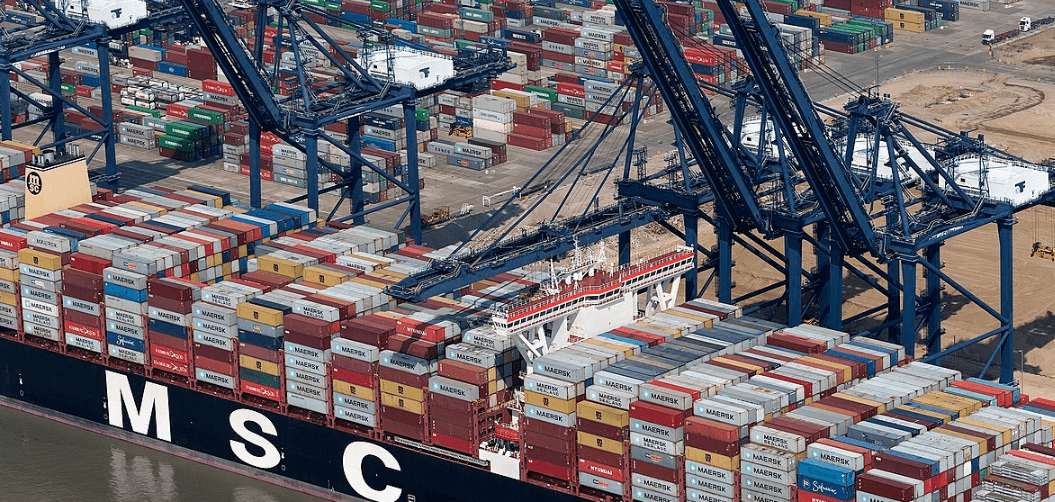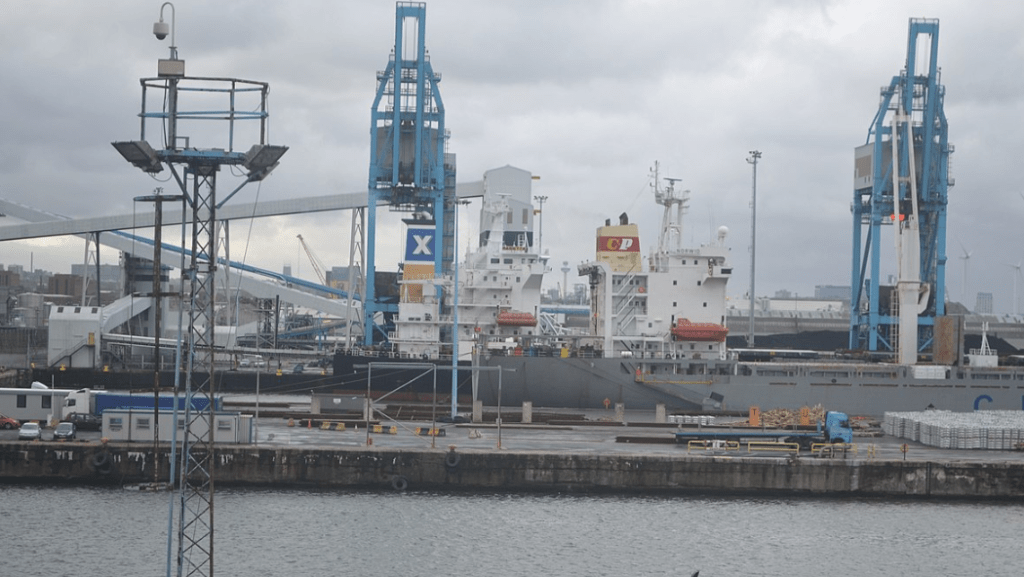
Dock strikes: Felixstowe over for now, Liverpool due to begin
By a Unite member
The port of Felixstowe has gone back to normal today as 1,900 Unite members finished eight days of strike action over pay. Meanwhile the 521 dockers employed in the Liverpool are to strike from the third week of September. Both strikes are an important marker of the rebuilding of working class organisation after past defeats.
Felixstowe once a minor port
Felixstowe was originally developed as a non-union port to get around the organised dockers’ opposition to containerisation that took place without pay improvements. In the 1960s Felixstowe had been a very minor operation, so small that it didn’t even qualify for inclusion in the National Dock Labour Scheme introduced in 1947 after a huge unofficial strike on the docks in 1945 carried out in the face of opposition from the right wing leadership of the TGWU and the Communist Party. The NDLS gave an element of workers’ control over hire and fire, with job security and reasonable working practices.
So Felixstowe was built up from 1967 onwards at the expense of better organised ports like Tilbury and Ipswich, to the point where today this one port alone handles almost half of UK imports. Such is the degree of automation at Felixstowe that just 1,900 workers handle half of the containers coming into the UK. As a result, Felixstowe is extremely profitable and yet last year’s pay award was 1.4% and this year’s offer only 5%. The dockers want their share of the profits made by the port.
Liverpool has a longer tradition of organisation
Liverpool is almost the opposite case. It was one of the bulwarks of the Dock Labour Scheme and had a proud record of refusing to handle imports from South Africa and nuclear waste. It was one of the last ports to still adhere to the standards set by the Dock Labour Scheme after the Tories abolished it in 1989. This was why the Mersey Docks and Harbour Company (MDHC) engineered the mass sacking of all the Liverpool dockers in 1995 – to escape from the decent conditions and partial workers’ control set by the Dock Labour Scheme and return to the days of the untrammelled rule of the bosses.
As part of a brutal attack on their own employees, they recruited an entirely new scab workforce. Unsurprisingly, there were few union members on the Liverpool docks for the remainder of the 1990s. But gradually union organisation was rebuilt, and now the Liverpool dockers are once again a force to be reckoned with and the docks are the fourth biggest UK port by tonnage, dealing mainly with grains, timber, bulk liquids and oil.

In 1911, at the time of the great dock strike, there were 100,000 employed on the Liverpool docks. Now the workforce is just over 500, and yet they handle far more cargo than those thousands and thousands used to do. They have every right to decent pay, and to protect their standard of living at the present time.
What should the next steps be?
At a branch meeting of the Liverpool docks branch the offer of 7% was rejected by 99.2%. As those off sick did not get a vote this represents virtual unanimity. Some of the original dockers, who still take an interest in what happens on the Liverpool docks have said, “No one could remember a vote so high”. And in a further indication of how working class organisation has been reforged, the same meeting fund a delegation from Liverpool to Felixstowe.
This is especially important given the two very different histories of each of the ports. From different starting points they have arrived at the same end point – a well organised port with high union density. The Liverpool delegation was warmly received by the Felixstowe dockers. The Port of Felixstowe was solidly on strike during the 8 day strike, which was emphasised by one of the dockers seen wind surfing through the near deserted port. (see World11 News, website)
These companies are profitable and can afford to pay. Why should these key workers in the ports accept a below inflation pay rise when company profits are through the roof?
The dockers in each port have already expressed their mutual solidarity and the next step has to be to escalate and co-ordinate with both ports organised to strike together for maximum effectiveness.
No comments:
Post a Comment